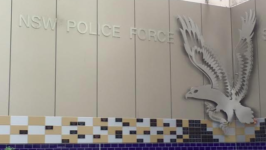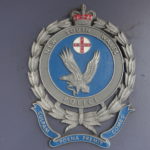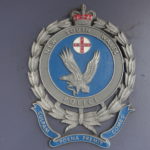More Than 80% of Strip Searches Turn Up Nothing

It is difficult not to be cynical about the New South Wales Government’s recent decision to shut down the Law Enforcement Corruption Commission’s (LECC) inquiry into strip searches, particularly in light of new statistics published this week that show that in an overwhelming majority of cases, strip searches turn up nothing.
Figures from the Bureau of Crime Statistics and Research (BOSCAR) show that of the 211,000 personal searches conducted by New South Wales police in 2018, 88 per cent resulted in police finding nothing – not illegal drugs, not knives or other concealed weapons. In fact, nothing at all.
The numbers paint a damning picture.
Police targeting children and indigenous Australians
More than 26,000 searches were conducted on children under the age of 18. When looked at geographically, in some areas around the state up to as many as 37 percent of strip searches involved children, with nothing found in more than 90 per cent of these.
About 78 per cent were conducted on Aboriginal and Torres Straight Islander people.
Until the moment it was canned in December last year (at the same time as the New South Wales government dismissed former head of the LECC Michael Adams QC) the inquiry into strip searches was tackling an issue that has become one of great social concern – that police are increasingly using the highly invasive procedure of strip searches, and are not always following the law when doing so.
Strip searches conducted illegally
Mr Adams’ tenure as head of the LECC and also head of the strip search inquiry was not renewed shortly after he told an LECC hearing that he would examine whether some of the unlawful strip searches the LECC had been investigating classified as indecent assaults. If any of this had actually been proven, the NSW police force would be potentially liable to compensate victims.
Because such a significant number of searches result in nothing being found, then it stands to reason that police are either inadequately trained to appropriate conduct strip searches, they misunderstand the governing guidelines, or are potentially ignoring the regulations which stipulate that they must have need to have ‘reasonable suspicion’ in order to conduct a strip search.
It is also possible that police could be simply using strip searches to threaten, intimidate and humiliate members of the general public. This accusation has been made previously, on a number of occasions.
Police performance targets
Also of serious concern also is the fact that police commands are given targets for the number of personal searches officers must conduct. Personal searches can involve a frisk or requiring someone to remove outer layers of clothing, but they can also include strip searches, in which all the person’s clothing may be removed.
Across NSW in 2018-19 police were expected to perform 242,000 personal searches.
Of the 238,923 actual searches conducted, two per cent, or 5353, were strip searches. Nothing was found in 66 per cent of these. In the same period, a total of 17,535 searches were conducted on Aboriginal and Torres Strait Islander people, with nothing found in 88 per cent of these.
Police have defended the targets, saying that the force is responsible for enforcing drugs and weapons laws and searches are a “vital detection tool and often necessary to find and seize these illegal items” despite the fact that looking at these figures, it is logical to conclude, because they turn up nothing in the vast majority of cases, that strip searches are largely ineffective, and a waste of police time and resources.
What does the law say?
The law governing the conduct of strip searches, which also outlines the rights of anyone subjected to the procedure, are outlined in the Law Enforcement (Powers and Responsibilities) Act 2002 (NSW).
The Act contains safeguards for children and vulnerable people, with which police must comply, including the fact that minors must be accompanied by an adult ‘support person’ during the search.
It also stipulates that strip searches must be conducted by an officer of the same sex as the person being searched irrespective of their age, and must be carried out in private.
But as last year’s public inquiry into strip searches found, these safeguards are often ignored. For example, when investigating the strip searches of three boys aged 15, 16 and 17 at a music festival, none of which found any illegal drugs, the LECC found that police arranged for two SES volunteers to act as independent support people, instead of enabling them to have a parent, guardian or trusted adult friend present.
The inquiry heard at least 25 children at one under-18s event were potentially subjected to the practice unlawfully, with volunteers from the Red Frogs charity also being used to oversee the strip-searching.
There have long been concerns about the psychological impact of strip searches, particularly on young people, with some calling it a form of state-sanctioned sexual assault. And with little evidence to prove they are actually an effective policing practice, it’s time that the NSW Police force re-considered the use of these searches. It’s also time for the New South Wales government to review the laws which govern them.







